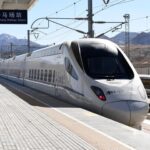The Pakistan-China business and investment forum kicked off on Monday in Islamabad, gathering companies from both countries with an aim to increase Chinese investment in Pakistan.
Pakistani Prime Minister Imran Khan attended the inaugural ceremony, saying that the forum will enhance the country’s exports through accelerated industrialization and that Pakistan is working on facilitating investors by improving its rules and regulations, according to Xinhua News Agency.
Based on a solid cooperative foundation, it is foreseeable that the newly established forum will broaden China-Pakistan cooperation under the Belt and Road Initiative (BRI) framework, creating more cooperative opportunities and enhancing industrial integration of the two economies.
Attracting foreign investment is of great significance for developing economies. China has been boosting investment in many friendly countries in recent years, especially in countries and regions within the BRI framework.
According to data from the Ministry of Commerce, China’s non-financial direct investment in countries under the BRI reached $17.99 billion from January to November in 2021, up 12.7 percent year-on-year despite the ongoing COVID-19 pandemic and gloomy global investment environment.
By bringing tangible benefits to local economies, the programs have demonstrated the advantages of cooperation with China. For instance, China has a strong track record in delivering infrastructure projects, a priority for developing nations to improve livelihoods and promote industrialization.
Taking cooperation between China and Pakistan for an example, as all-weather strategic cooperative partners, the two nations have been promoting cooperation in various sectors, from roads, energy to industrial and agricultural projects. The China-Pakistan Economic Corridor (CPEC) which was put forward in 2013 has become a flagship cooperation program of the BRI.
After eight years of construction, the CPEC has delivered a long list of achievements, including the Matiari-Lahore high-voltage direct current (HVDC) transmission project which had delivered more than 6 billion kilowatt-hours of electricity by the end of 2021. The project has solved power shortage of local regions and created many job opportunities for local people.
Besides the transmission project, China is also helping Pakistan to build hydropower stations, special economic zones, technical training schools and other partner programs; not to mention that China has been Pakistan’s largest trading partner for seven years in a row.
This productive collaboration has laid solid foundation for further expansion of the bilateral partnership. Meanwhile, such kinds of beneficial cooperation has had to deal with disruption caused by the US and its allies, which have been tirelessly attempting to vilify the projects and even announcing copycat versions of the BRI with an aim to contain the development of China.
The vilification campaign, such as cliché “debt trap” stories has become increasingly unpersuasive in the face of many highly successful BRI projects and growing numbers of countries actively joining with China to pursue common development.
Moreover, the US and its allies maintain obvious disadvantages in competing with China in launching cooperation with the developing countries, from lacking of capital, competitive technique to, more importantly, their hegemonic mindset which never put other developing countries at equal footing.
By contrast, China’s cooperation with Pakistan and other developing countries is based on mutual respect with an aim to boost common growth. It in line with the recovery and growing demand of partner economies and will not be interrupted by Washington and its allies’ ill-intended efforts to undermine cooperation. Time will tell.
Illustration: Tang Tengfei/Global Times




